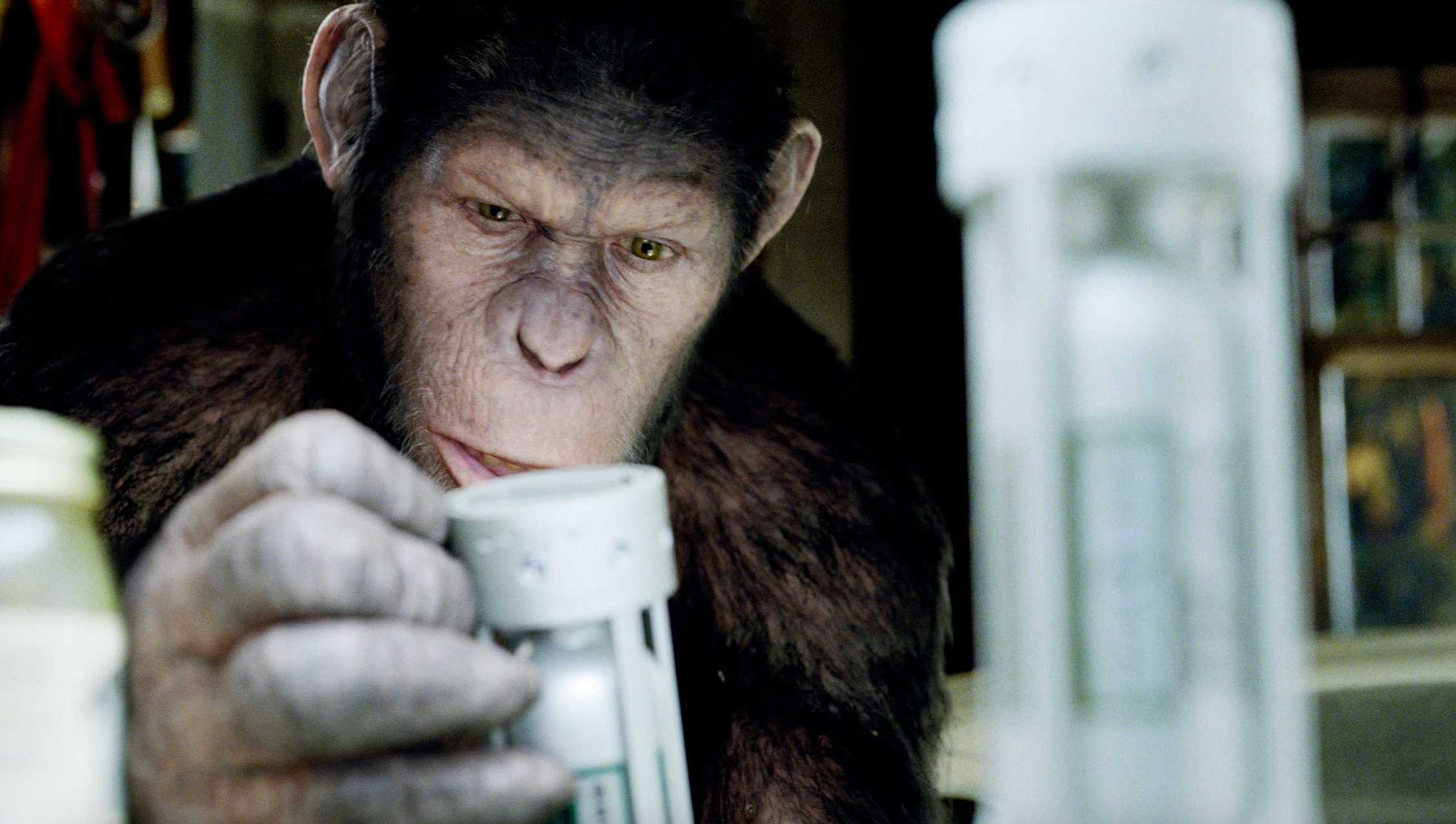
In the original 1968 Planet of the Apes, the apes treat time-traveling human astronaut Colonel George Taylor (Charlton Heston) as a pet, even giving him a cutesy nickname: Bright Eyes. Whether this inspired the name of the indie rock band is unclear, but it packs an emotional oomph. Within the first few minutes of 2011’s Rise of the Planet of the Apes, the film weaponizes the name Bright Eyes, but inverts its emotional impact. In this reboot, Bright Eyes is an ape, and the mother of the future.
Given the various controversies surrounding James Franco, Rise may not have the greatest legacy as a stand-alone film. But the 21st-century Apes franchise is much bigger than Franco, and while the series is better known for its two excellent sequels, the fact the first film works at all is a minor miracle. This reboot disguised as a prequel is streaming now on Amazon’s Freevee, and for serious sci-fi aficionados, it’s worth a second look.
Unlike the Twilight Zone-esque quality of the five original Planet of the Apes films, Rise of the Planet of the Apes has a refreshing lack of ex post facto twists. As the title suggests, the movie shows a linear progression of innocent events that will lead to a future where the apes become smart enough to rival humans for global dominance.
In the original movies, the existence of the first talking ape, Caesar, is the result of a bootstrap paradox; Caesar was the child of time-traveling apes Zira and Cornelius. Rise essentially keeps this backstory, but instead of baby Caesar (Andy Serkis) coming from the future, his mother — “Bright Eyes” — has undergone experimental brain treatment in pursuit of a wonder drug that could cure Alzheimer’s. When Bright Eyes goes berserk trying to protect her baby, all the apes are put down, leading Dr. Will Rodman (Franco) to secretly adopt Caesar, who’s destined to become the leader of an ape revolution.
What makes Rise such a compelling reboot is that unlike the timey-wimey plotting of the original films, or the gonzo ridiculousness of the 2001 Marky Mark version, the story is grounded and straightforward. Like an extra-long episode of Black Mirror, Rise presents a cutesy Frankenstein tale with a tender, humanist theme. Yes, it’s all leading to apes running amok and battling humans, but at no point does the movie turn the apes into monsters. Instead, the script — from Rick Jaffa and Amanda Silver — treats both humans and apes realistically, something the classic films couldn’t always manage. The ethics of Rise match the original movies and Pierre Boulle’s novel in one specific way: the stories explore what it means to be aware of your life.

Rise of the Planet of the Apes didn’t invent these philosophical questions, nor did it break new ground by exploring them through a sci-fi lens. However, before Rise, the notion of taking a goofy franchise like Apes and transforming it into serious modern cinema seemed impossible. The rebooted Battlestar Galactica proved that the utter reinvention of a sci-fi franchise was possible, but that seemed like an outlier rather than a proof of concept.
The success and quality of Rise changed that, and the wonderful performance from Andy Serkis as Caesar was just the beginning of what he’d accomplish in the two sequels, Dawn of the Planet of the Apes (2014) and War for the Planet of the Apes (2017). They’re superior experiences, but they needed the foundation of the first movie.
High-concept, hyperbolic premises are what makes sci-fi so wonderful, but the key is making those ideas feel worth your time. This balancing act is hard to pull off, and failure dooms a movie to be forgotten. Rise has a mixed legacy, partly because it was already part of a legacy when it debuted. It’s unclear what we’ll think of it decades from now, but today, it stands apart as a unique and grounded approach to an outrageous premise. If the purpose of good sci-fi is to make you believe in the improbable, then Rise of the Planet of the Apes succeeded beyond what anyone could have anticipated.







